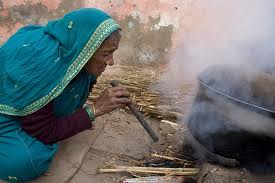A vision for clean cooking access for all
Nearly one in three people, the vast majority of them in the poorest regions of the world, still lack access to clean cooking facilities, with major ramifications for public health, local environments
Nearly one in three people, the vast majority of them in the poorest regions of the world, still lack access to clean cooking facilities, with major ramifications for public health, local environments
This policy guide explores how access to energy can assist with policies for the chronically poor. Over the past two years, the challenge of providing people living in poverty with access to modern energy
Globally, solid fuels are used by about 3 billion people for cooking. These fuels have been associated with many health effects, including acute lower respiratory infection (ALRI) in young children. Nepal
Our health is not on anybody’s agenda. Or, we just don’t seem to make the connections between the growing burden of disease and the deteriorating condition of our environment. We don’t really believe the

This report released by Global Alliance for Clean Cookstoves indicates that two-thirds of Indian families till use solid fuel traditional stoves and will continue to do so over the next decade, leading to 875,000 premature and avoidable deaths annually from indoor air pollution.
The “India Cookstoves and Fuels Market Assessment” was conducted by Dalberg Global Development Advisors on behalf of the Global Alliance for Clean Cookstoves (“the Alliance”). t is one of a series of country
While the government is organising various programmes to mark the renewable energy week, local authorities in Dolakha have declared a plan to make the district free of indoor smoke by 2016. Addressing
Delhi set to become first kerosene-free state With the distribution of filled liquefied petroleum gas (LPG) cylinders in the Rajinder Nagar assembly constituency, the government has begun the process of making Delhi a kerosene-free state. The constituency is represented by the Transport Minister, Ramakant Goswami. A few years ago, the government had announced that it would distribute gas cylinders and stoves free of charge to the BPL cardholders to make the Capital kerosene-free.
An estimated 2.6 billion people rely on traditional biomass for home cooking and heating, so improving the efficiency of household cookstoves could provide significant environmental, social and economic

The Government of Denmark joined hands with Government of Nepal in 1999 to support for the renewable energy sector through the Energy Sector Assistance Programme (ESAP) under Alternative Energy Promotion
High blood pressure (BP) has become the world’s deadliest diseasecausing risk factor. But for Indians, IAP (indoor air pollution) — emanating from chulhas burning wood, coal and animal dung as fuel — has